Governance
The Lisps, Futurity, Soho Rep. Photo by Julieta Cervantes.
Board of Directors
The governance, management, and direction of the Jerome Foundation are vested in the Board of Directors, who approve all grants awarded by the Foundation and who are elected by the Members of the Jerome Corporation (see following section).
The Directors as a body bring first-hand knowledge of and passion for the work of early career/emerging artists. Directors most typically are working artists or arts administrators, complemented by individuals whose professional lives and expertise lie outside of the arts but who have been involved in the arts through Board or volunteer experiences at other organizations in the past. Directors may be elected for three three-year terms for a maximum of nine years of service.
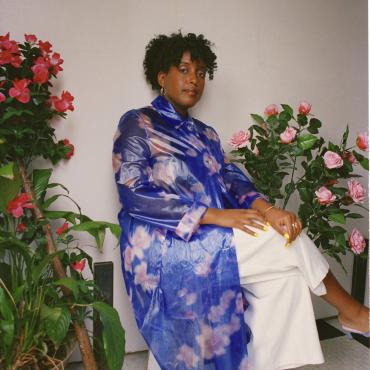

Salome Asega (elected 2024) is an artist and Director of NEW INC at the New Museum. Her work invites the playful and absurd to critique the speed at which technology develops and poses new consentful tech futures leveraging the power of collective imagination. Salome is a 2022 United States Artists Fellow and an inaugural cohort member of the Dorchester Industries Experimental Design Lab developed by Theaster Gates, Rebuild Foundation, and Prada. She is also a co-founder of POWRPLNT, a Brooklyn digital arts lab for teens, incubated at NEW INC in Year 3. Salome has participated in residencies and fellowships with Eyebeam, The Laundromat Project, and Recess. She has exhibited at the Munch Museum, 11th Shanghai Biennale, MoMA, Carnegia Library, August Wilson Center, Knockdown Center, and more.
Photo by Jeremy Grier.
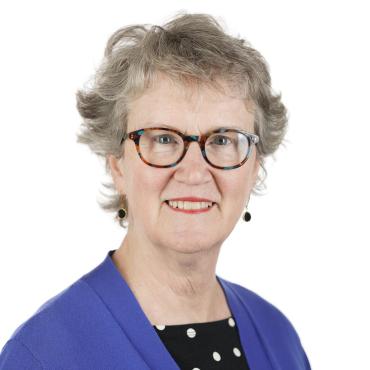

Kate Barr (elected 2016) advises nonprofits locally and nationally on strategy, finance, and governance as a speaker, author, and trainer. She currently serves as Senior Advisor for the Minnesota CDFI Coalition.
Previously, she was the President and CEO of Propel Nonprofits, a Minnesota-based nonprofit whose mission is to fuel the impact and effectiveness of nonprofits with guidance, expertise, and capital. During her tenure at Propel, Kate led the team in developing and implementing innovative financing and programming and worked with the board of directors to direct organizational planning and growth. She joined Propel after serving as a bank executive and began her professional life as business manager of a performing arts nonprofit.
Kate holds an MA in Leadership from Hamline University. She teaches courses on nonprofit governance and finance at the Humphrey School of Public Affairs at the University of Minnesota. She currently serves on the boards of directors of the Jerome Foundation and Center for Victims of Torture and the advisory board for Minnesota Bank & Trust.
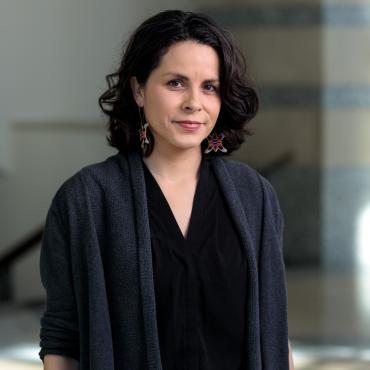

Dr. Kate Beane (Flandreau Santee Sioux Dakota and Muscogee Creek) holds a PhD in American Studies from the University of Minnesota, Twin Cities. She is the Executive Director of the Minnesota Museum of American Art and serves as adjunct faculty in the American Indian Studies at the University of Minnesota. She is chair of the board for Vision Maker Media, a national organization based out of Nebraska, chair of the board for Wakan Tipi Awanyankapi in St. Paul (Imnizaska), and in 2020 was appointed by Governor Walz to serve on the Capitol Area Architectural and Planning Board (CAAPB), which oversees Capitol complex preservation and development (including public art) in downtown St. Paul. In 2018 Kate and her father Syd Beane completed a documentary film, Ohiyesa: The Soul of an Indian, which shares the story of her grandfather, writer, reformer, and physician Charles A. Eastman and in 2019 she presented a TEDxMinneapolis talk titled “The Lasting Legacy of Place Names,” which spoke to her family’s work restoring the Dakota name Bde Maka Ska in south Minneapolis (Bdeota).
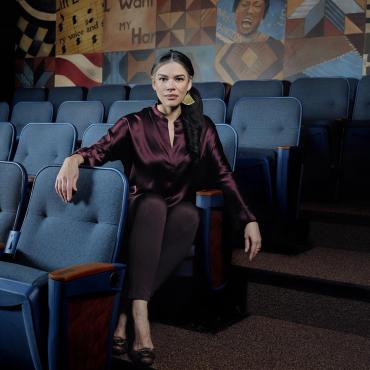

Sarah Bellamy (elected 2018) is a nationally renowned racial equity facilitator and practitioner of racial healing. Her methods are holistic, profound, and foster powerful intimacy and authenticity for clients. She brings a wealth of scholarship, strategic acuity, and deep compassion to consultative and coaching relationships. Her writing focuses on memoir, personal essays, plays, and short stories. She is a stage director and the president of Penumbra, a center for racial healing that houses one of the nation’s oldest and largest African American theatre companies.
Sarah is a graduate of Sarah Lawrence College and holds an M.A. in the Humanities from the University of Chicago. She has taught at Macalester College, the University of Minnesota, and served as Visiting Professor of Theatre and Culture at United Theological Seminary of the Twin Cities. Her lectures on the power of race and representation have been presented across the country illuminating the ways in which images, narratives, and media influence perception and ultimately shape lives. She is a skilled and dynamic public speaker offering audiences fresh, big-hearted, and courageous perspectives on a wide range of topics. She is especially recognized for her work on racial healing, authenticity, and resiliency.
Sarah has been awarded the Hubert H. Humphrey Public Leadership Award, a Bush Foundation Fellowship, and served on the Board of Directors for Theatre Communications Group. She currently serves on the Board of Directors for the Jerome Foundation. More at www.sbellamy.com
Photo credit: Simone Lueck
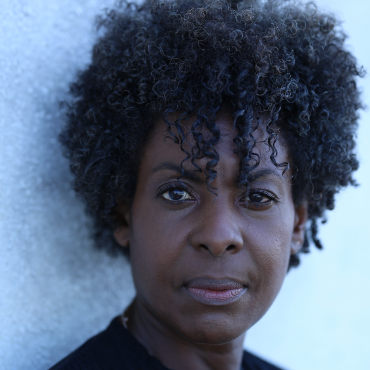

Helga Davis is a vocalist and performance artist with feet planted on the most prestigious international stages and with firm roots in the realities and concerns of her local community whose work draws out insights that illuminate how artistic leaps for an individual can offer connection among audiences. Davis was principal actor in the 25th-anniversary international revival of Robert Wilson and Philip Glass’s seminal opera Einstein on the Beach. She also starred in Wilson’s The Temptation of St. Anthony, with libretto and score by Bernice Johnson Reagon. Among the collaborative and works written for her are Oceanic Verses by Paola Prestini, You Us We All by Shara Nova and Andrew Ondrejcak and Yet Unheard, a tribute to Sandra Bland by Courtney Bryan, based on the poem by Sharan Strange. She has conceived and performed First Responder and Wanna as responses to Until and The Let Go by multidisciplinary artist Nick Cave. She is artist in residence at National Sawdust and Joe’s Pub, host of the eponymous podcast HELGA on WQXR, winner of the 2019 Greenfield Prize in composition, a 2019 Alpert Award finalist, and the 2018–21 visiting curator for the performing arts at the Isabella Stewart Gardner Museum.


Unpredictable & unbound, Daniel Alexander Jones (elected 2017) is an artist whose wildflower body of work has long been recognized by a wide range of communities. Jones extends traditions of art-making rooted in Black & Queer histories of performance, music, literature, and civic practice. 2023 marks Jones’s 30th year of professional practice. This year, Jones has thus far released his new album Aquarius; presented May As Well Be a Rainbow, an offering commissioned by the McCarter Theatre honoring Toni Morrison & her archive; & Altar No. 3: I Choose to Remember Us Whole, an installation at The Henry Gallery in Seattle & public processional produced by The Meany Center at UW. Jones’s past projects include Black Light (Public Theater); Duat (Soho Rep); Radiate (Soho Rep & national tour) and Phoenix Fabrik (Pillsbury House Theatre). As his “altar-ego” Jomama Jones, named “a true theatrical original” by Backstage Magazine, he has released six albums and toured widely to critical acclaim. Jones’s ongoing ALTAREDSTATES initiative is housed at CalArts’ Center for New Performance and may be encountered at www.aten.life.
Daniel Alexander Jones is a TED Fellow, a Doris Duke Artist Award recipient, a Guggenheim Fellow, a USA Artists Fellow, a two-time Art Matters Grantee, a five-time MAP Fund recipient, an inaugural Creative Capital Grantee, an Alpert Award in the Arts Awardee, and has received the PEN/America Laura Pels Award in Theatre and the IDEA Award in Theatre. A collection of his plays and performance texts, Love Like Light, is available from 53rd State Press alongside a volume of conversation with Alexis Pauline Gumbs entitled Particle & Wave. All These Things, a volume of discussion with Sharon Bridgforth is forthcoming in Summer 2023. Jones apprenticed with legendary artists Robbie McCauley, Laurie Carlos, Jessica Hagedorn, Rebecca Rice, and Aishah Rahman and is considered an innovator for his own contributions to the field, and a mentor to dozens of young artists. Jones is delighted to serve as a Producing Artist at CalArts’ Center for New Performance. He is on the board of the Jerome Foundation. He lives in Los Angeles.


Lori Lea Pourier, (Oglala Lakota) (elected 2018) served as the President/CEO, First Peoples Fund (FPF) from 1998-2024, and transitioned to her new role as Founder & Senior Fellow in March 2024. Dedicated to a vision of restoring and strengthening cultural assets within tribal communities for nearly 30 years, she focuses her efforts on bringing philanthropic resources to Native artist entrepreneurs and culture bearers. Through its Indigenous Arts Ecology program, FPF partners with Native CDFI's and community-based nonprofits to strengthen the support for arts and culture in tribal communities.
Her early work began at First Nations Development Institute and the executive director of the International Indigenous Women’s Network (IWN). She is a 2017 Ford Foundation Art of Change Fellow, a 2013 Women’s World Summit Foundation Prize for Creativity in Rural Life, and a 2013 Louis T. Delgado Distinguished Grantmaker Award. Pourier is an alumnus of the American’s for Indian Opportunities (AIO) American Indian Ambassadors Leadership Program where she stands with more than 350 Indigenous leaders.
Lori is a 2025 Bush Foundation Fellow and a 2024 American Academy of Arts and Sciences inductee. In 2022, Lori was recognized as one of The Kennedy Center’s “Next 50”— fifty leaders and organizations that are lighting the way forward through sustained excellence of artistic, educational, athletic, or multi-disciplinary work. She is a 2017 Ford Foundation Art of Change Fellow, a recipient of the 2013 Women’s World Summit Foundation Prize for Creativity in Rural Life, and a 2013 Native Americans in Philanthropy Louis T. Delgado Distinguished Grantmaker Awardee. As an alumnus of the Americans for Indian Opportunity (AIO) American Indian Ambassadors Leadership Program, she stands with more than 500 Indigenous leaders worldwide.
Lori serves on the Board of Directors of the Jerome Foundation and is an appointee of Librarian Carla Hayden at Library of Congress’s American Folklife Center Board of Trustees. She served two terms on Grantmakers in the Arts (GIA) and Native Americans in Philanthropy boards of directors. Lori also contributed to the National Endowment for the Arts’ publication, How to Do Creative Placemaking. Lori is a Core Partner with Arts in a Changing America, the Cultural New Deal and the Intercultural Leadership Institute (ILI), a collaboration between First Peoples Fund, Alternate ROOTS, the PA’I Foundation, and the National Association of Latino Arts and Culture She holds a Master of Science degree from New Hampshire College Graduate School of Business.
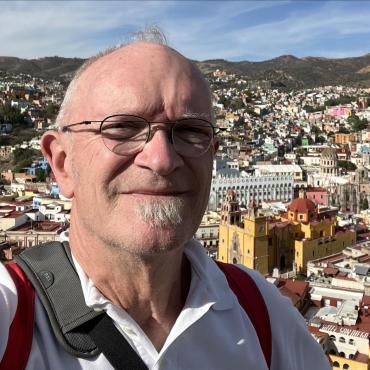

Rick Scott (elected 2019) retired from The McKnight Foundation in 2019. He joined McKnight in 1999 as Director of Finance, becoming Vice President, Finance and Administration in 2000. In 2006 he was named Vice President of Finance and Compliance, and Secretary, focusing on foundation governance, compliance, financial operations, and investment management. Previously, Rick spent 5 years as CFO of The Guthrie Theater following 5 years as CFO of a human service agency in the Twin Cities area and thirteen years in financial management in the tech industry. His undergraduate and graduate studies were in international economics, supplemented with language studies in Spanish, Russian, German, Italian and French. Rick continues to advise non-profit organizations on investment, finance, and compliance issues.
Community service has included boards of MN Museum of American Art (the M), MN Council on Foundations, MN Charities Review Council, PFund, Quatrefoil Library, Foundation Financial Officers Group, Proteus Fund, Door County Land Trust, and Northern Clay Center, and committees of Third Avenue Playhouse, Council on Foundations, and Headwaters Foundation among others. He is a member of the Walker Art Center, Mpls Institute of Arts, Russian Art Museum, Northern Clay Center, the M, and Door County Land Trust.
Rick’s non-work interests include the visual and theater arts, history and language studies, hiking, sailing, skiing, land conservation, and both domestic and international travel. Although a St. Paul native, Rick splits his time in St. Paul and Door County, Wisconsin with his husband Dale.


Sanjit Sethi (elected 2020), is the incoming Head of Campus- Green School Bali and former President of the Minneapolis College of Art and Design, has two decades of experience as an artist, curator and cultural leader. Sethi’s previous positions include Director of the Corcoran School of the Arts and Design at George Washington University, Director of the Center for Art and Public Life, Barclay Simpson Professor, and Chair of Community Arts at the California College of the Arts; and Executive Director of the Santa Fe Art Institute. Additionally, Sethi has taught at the Srishti School of Art, Design, and Technology; the Massachusetts Institute of Technology; and the School of the Art Institute of Chicago.
Sethi received a BFA from New York State College of Ceramics at Alfred University, an MFA in Ceramics from University of Georgia, and an MS in Advanced Visual Studies from the Massachusetts Institute of Technology. Sethi has been awarded numerous grants and fellowships, including a grant from the Robert Rauschenberg foundation, and a Fulbright fellowship in India.
As an artist and curator, Sethi’s work has spanned different media and geographies. Past works include the Kuni Wada Bakery Remembrance; Richmond Voting Stories; the Gypsy Bridge project. Recent curatorial projects have included Spiked: The Unpublished Political Cartoons of Rob Rogers and the upcoming exhibition, 6.13.89 The Cancelling of the Mapplethorpe Exhibition. Additionally, Sethi is currently working on the Portland Hospice Potters Network and a body of paintings and drawings—the Delta Series.
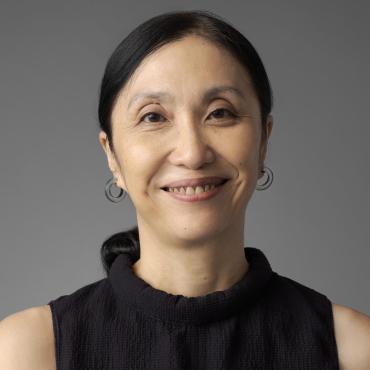

Janet Wong (elected 2024) is a seasoned performing arts leader with deep expertise in contemporary dance and performance across the U.S. and internationally. From 1995 to 2025, she served as Associate Artistic Director of New York Live Arts and the Bill T. Jones/Arnie Zane Company, where her work encompassed curation, creation, production, education, and mentorship. Her curatorial and artistic interests span intersectional systems, technology, education, environmental justice, international exchange, and, of course, the transformative potential of art and performance. Janet is a mentor at NEW INC, the New Museum’s cultural incubator, and serves on the boards of the Jerome Foundation and Big Dance Theater.
Photo by Stephanie Crousillat.
Members of the Corporation
Members of the Corporation are charged with preserving the legacy of Jerome Hill and ensuring that the charitable purposes of the Jerome Foundation are observed.
Members include both family relations and individuals without kinship who have been chosen because of their ties to the Hill family over time. Members may be elected for five three-year terms for a total of 15 years of service.
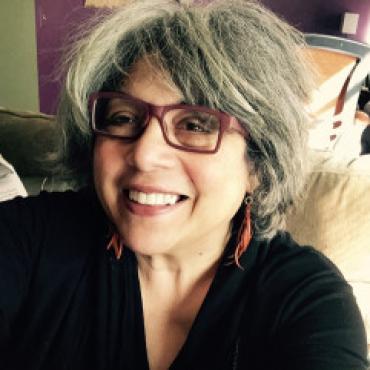

Linda Earle has been a Jerome Foundation Member since 2024. Now retired, Earle is a former Professor of Practice in Art History at Tyler School of Art, Temple University. She is especially interested advancing artists, cultural managers and curators who will create new platforms for cultural practice, participation, and discourse, and challenge institutions to define and adopt equitable practices.
Previously Linda worked as Executive Director the Great Lakes Colleges Association’s New York Arts Program, as Director at the Skowhegan School of Painting and Sculpture, and as a senior Program Director at the New York State Council on the Arts where she crafted the Individual Artists Program and worked in program and fiscal analysis of and support for museums and contemporary visual arts organizations. She has taught film and cultural studies at Mason Gross School of the Arts, Rutgers University, Hunter College, and Barnard College and has served on numerous grants and commissioning panels and artist advocacy groups. She has also worked in independent film, theatre, and visual arts curatorial projects over the years.
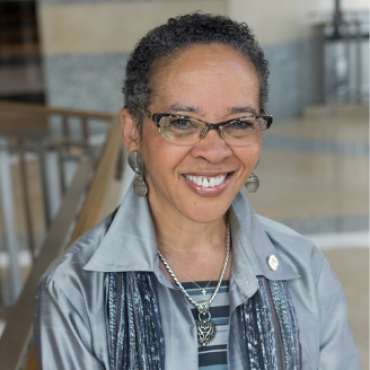

Phyllis Rawls Goff serves as a community volunteer with several nonprofit organizations in the Twin Cities area, including the Minnesota Historical Society, the McKnight Foundation, and the Saint Paul YWCA. Prior to retirement, Goff worked as an executive in the industries of telecommunications, higher education administration, and philanthropy. Her career included handling government relations, community affairs and customer service at U S West and Qwest (now CenturyLink); serving as chief of staff to the president at Hamline University; and interim chief of staff at The Saint Paul Foundation and Minnesota Community Foundation.
Phyllis was board chair and is a longtime supporter of Penumbra Theatre. She currently resides in Saint Paul and enjoys spending time with her grandchildren, her volunteer work, and promoting Saint Paul.


Libby Hlavka has been a Jerome Foundation Member since 2015. She is a member of the Hill family and grew up in St. Paul hearing wonderful stories about Jerome Hill, a first cousin of her grandfather. Several of his paintings hang in her home and remind her daily of Jerome’s legacy—his vivid example of a passionate life devoted to creating art and supporting artists.
Hlavka has over twenty years of experience in strategic planning, program development, and financial management within academic, corporate, and non-profit organizations. She currently serves as President of the Driscoll Foundation. Before returning to Minnesota, she held several senior administrative positions within Stanford University, focused on strategy and curriculum development. Prior to Stanford, Hlavka was a consultant with McKinsey & Company. She began her career as a financial manager at GE.
In addition to the Jerome Foundation, Hlavka serves on the boards of the Northwest Area Foundation, the Minnesota Historical Society, and Minnesota Public Radio/American Public Media. Her past board experience includes College Possible, Franconia Sculpture Park, Milkweed Editions, and St. Paul Academy and Summit School, and she is an active volunteer and fundraiser for a number of other schools and non-profit organizations.
Hlavka received a BA in History from Yale University, an MBA from Stanford Graduate School of Business, and an MFA in Literature and Creative Writing from Bennington College. She lives in Minneapolis with her husband and their three children.


Nick Slade, Jerome Foundation Member since 2019, is a member of the Hill family and grew up in Minneapolis. His first introduction to Jerome Hill’s work was a family screening of his autobiographical movie Film Portrait. The opening sequence in negative and the color it reveals in things has remained with him as a reminder that there is always more than one way to see, even when shaving in the bathroom.
He is Deputy General Counsel to the Minnesota Department of Military Affairs. Previously he has worked for the U.S. Army at the National Guard Bureau in Virginia, for the Minnesota Office of Lawyers Professional Responsibility, in private practice as a consumer rights attorney with Barry, Slade & Wheaton LLC, and as an assistant public defender for the Office of the Public Defender 2nd Judicial District in St. Paul.
Slade earned his bachelor’s degree from the University of Minnesota and his juris doctor from Hamline University School of Law. He served in the U.S. Army, on active duty from 1982 to 1985, and in the U.S. Army Reserves until 1994. He joined the Minnesota National Guard as an attorney in the Judge Advocate Generals Corps in 2012, serving on active duty in 2012-2013 and 2015 to the present.
He is currently a trustee with the Northwest Area Foundation having previously served on the board from 2010-2019. He was as a member of the Minnesota Supreme Court Legal Services Advisory Committee in 2007-2015 and was on the board of Minnesota’s Franconia Sculpture Park in 1997-2011.
Slade lives in St. Paul, Minnesota, with his wife and has two adult children.
